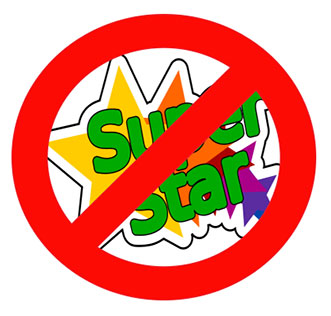 Every team has a Lebron James, Kevin Durant, or Dwayne Wade. That one team member who not only brings in the most results, but also keeps everyone motivated and serves as the face of the team. We consider these A-players corporate royalty and do what we can to reward them for their high level of achievement.
Every team has a Lebron James, Kevin Durant, or Dwayne Wade. That one team member who not only brings in the most results, but also keeps everyone motivated and serves as the face of the team. We consider these A-players corporate royalty and do what we can to reward them for their high level of achievement.
But, even when you’ve given your MVP everything they’ve asked for, sometimes they still leave. Whether it’s Lebron James leaving the Miami Heat after 3 consecutive NBA finals appearances and two championships, or Kevin Durant who could do nothing wrong in the eyes of the Thunder organization, they both still left. Sometimes employees don’t leave because of their manager, or salary, or workload. Sometimes employees leave for something outside of your control. In an ideal world, we could stop all superstar team members from leaving, but when we can’t, we are left to handle the aftermath of their departure.
The resignation of a high performer can be devastating to a team. Not only do you lose the tangible results they brought to your organization through sales, customer/client relationships, and/or productivity. You also lose the historical knowledge, unique skills, and abilities they brought to the table. You will likely also see an impact on team morale.
The employees left behind have to pick up the slack as long as the team is understaffed. Those same team members may feel hurt that their friend and colleague left them. They will likely also question whether it’s time for them to seek out a new opportunity as well.
The worst thing you can do in this scenario is pretend the departure doesn’t matter. You won’t fool anyone. If you’re open, honest, and address everyone’s concerns and emotions quickly, you’re more likely to stop a flood of employees from updating their LinkedIn profiles. Accept the resignation with grace, thank the employee for their service, and wish them well in their next opportunity. Then, focus on the team members who aren’t leaving the organization.
Create a plan quickly. When an employee leaves, the leftover team members will naturally have dozens of questions about how it will impact them. Before you communicate the resignation, make sure you’ve negotiated an exit plan for the employee including how/when their current workload will be distributed to others. Be honest and sympathetic about the fact that everyone’s workloads will increase for a short period of time.
“It’s not personal, it’s just business.” There has never been a more meaningless or overused cliché in business. To the team members (and managers) left behind, it feels very personal. The only person it’s not personal for is the one who’s leaving. Take time and let your team members express their sadness or frustration over their team member’s departure. Listen to, validate, and answer their concerns.
Find a cheerleader. There’s always one team member who helps people see the bright side of any situation. When a star employee leaves, it’s easy to focus on the negative. Engage your most vocal, optimistic team members and let them know you’re relying on them to keep everyone engaged and focused on the bright side. Attitude is contagious. Do what you can to break the cycle of negativity.
Don’t dwell on the past. While you want to be respectful of the legacy your star player left, it’s important to look forward towards a bright future. Whether you promote an existing team member or fill the gap with a new employee, without rushing, you’ll want to do so as quickly as possible so everyone adjusts to their current team composition and future opportunities.
Change is never easy. Losing a beloved high performer creates a financial and emotional burden for the entire organization to bear. When you can’t entice the A-player to stay, you must focus on retaining the rest of your team and giving them reasons to be excited and hopeful for the future.
